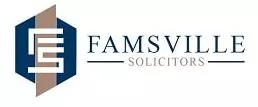The Special Control Unit Against Money Laundering (“SCUML”) was established by the Federal Government in September 2005 in compliance with the provisions of the Money Laundering (Prohibition) Act 2004 which was subsequently repealed and amended to the Money Laundering (Prohibition) Act 2011(as amended). SCUML is a unit under the Economic and Financial Crimes Commission (“EFCC”), as the Commission drives the operative activities of the Unit in line with Sections 6(C) and 7(2) of the EFCC Establishment Act, 2004. The certificate of registration is issued in accordance with the provisions of Section 5 (1) (a) and (4) of the Money Laundering (Prohibition) Act 2011.
The need for corporate entities to obtain SCUML's certificate of registration is steadily on the increase as the opening and continued use of bank accounts for corporate entities partly depends on it (alongside other requirements like certificate of incorporation issued by the Corporate Affairs Commission (“CAC”), Tax Identification Number (“TIN”)). it is important to note that the certificate is a mandatory obligation for Designated Non-financial Institutions (DNFIs) pursuant to Section 25 of the Money Laundering (Prohibition) Act 2011 and non-compliance may also lead to criminal prosecution against such entity and its officers.
WHAT ARE DESIGNATED NON-FINANCIAL INSTITUTIONS (DNFIs)?
Based on Section 25 of the Money Laundering (Prohibition) Act 2011, DNFIs include the following:
- Dealers in jewellery and luxury goods
- Chartered Accountants
- Audit Firms
- Tax consultants
- Clearing and settlement companies
- Legal practitioners
- Hotel and Hospitality
- Casinos, Pool, Betting, and Lottery
- Supermarkets
- Such other businesses as the Federal Ministry of Trade and Investment or appropriate regulatory authorities may from time to time designate.
Other categories as provided for on the SCUML registration form:
- Cars and vehicles
- Trust and Company Services
- Construction Company
- Consultants and Consulting Company
- Dealers in Real Estate
- Estate Surveyor & Valuers
- Precious Stones & Metals
- Mechanized Farming
- Mortgage Brokers
- Nonprofit Organizations
Procedure for SCUML Registration
- Fill the SCUML registration form
- Upload required documents.
Documents required to be uploaded is dependent on the type of corporate entity and the applicable DNFI category.
The general documents required are:
- CAC incorporation documents
- Evidence of tax registration (Tax Identification Number (TIN))
- Evidence of tax exemption (where applicable)
- Approvals/Authorization/licenses (where applicable)
- Professional certificate (where applicable)
- Any other document deemed necessary
The estimated timeline for approval and issuance of the certificate is 21 working days from the date of submission, and entities have the option of choosing which office location to collect the certificate from. Only the director(s) of the company can go to the pre-chosen office to collect the certificate. The director will be required to show a valid identification card before the certificate will be released.
While SCUML registration has become an important requirement for setting up corporate entities and ensuring their continued existence as a going concern, there is a spiral which banks and the SCUML agency must investigate. This is the fact that to register with SCUML and obtain a certificate, an entity is expected to provide bank account details; on the other hand, to create a corporate account for the entity, the banks require a SCUML certificate. This creates confusion in the minds of people who wish to obtain the SCUML certificate and as well open a corporate account for their entities. It is strongly advised that this issue be investigated and resolved accordingly.
In conclusion, are you a corporate entity registered in Nigeria and falls under the category of DFNI, kindly note that obtaining the SCUML certificate is a mandatory obligation you must fulfill. We are well positioned to assist you with this requirement.
The content of this article is intended to provide a general guide to the subject matter. Specialist advice should be sought about your specific circumstances.

